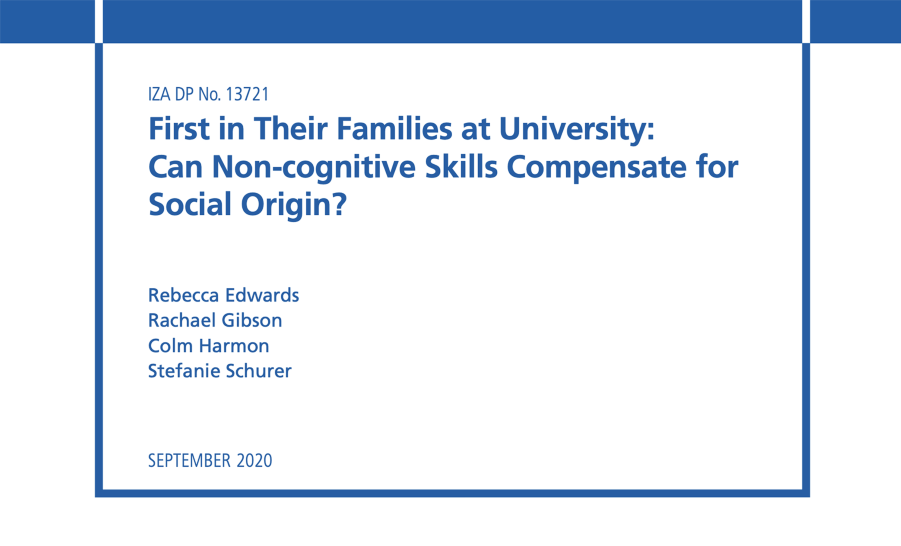Three Ideas for Post-Coronavirus Educational Recovery
There are many ways that schools can proactively address the inevitable and inequitable gaps caused by coronavirus-related school closures.
IZA Institute of Labor Economics / September 2020

The authors study the role of non-cognitive skills in academic performance of students who are the first in their family to attend university. They collected survey data on an incoming student cohort from a leading Australian university and linked the survey with students’ administrative entry and performance records. First-in-family students have lower grade point averages by about a quarter of a standard deviation than the average student. This performance penalty is larger for young men. The penalty is strongest in the first semester but disappears over time. Some non-cognitive skills (Conscientiousness, Extraversion) predict academic performance almost as strongly as standardised university admissions test scores. High levels of Conscientiousness over-compensate for the performance penalty experienced by first-in-family students, while very low levels exacerbate it. However, adjusting for extreme responses in self-assessed Conscientiousness with anchoring vignettes eliminates the performance advantage of disadvantaged, but highly conscientious students. Overall, our findings accentuate the importance of non-cognitive skills as key indicators of university readiness, and their potential for closing the socioeconomic gap in academic performance.